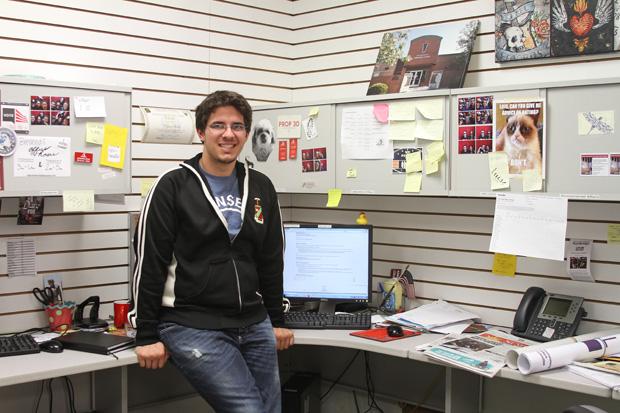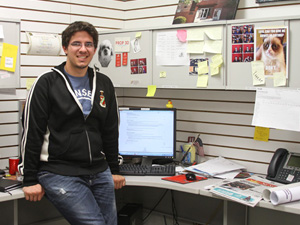
Word choice can be tricky.
In an age where filters only apply to Instagram pics, no one really stops to think about the words they choose and the meanings attached to them. But when you’re speaking to linguistics and deaf studies major Martin Watkins, 22, you might just have to think twice.
Watkins can’t help but be “intrigued” by the way individuals communicate. His fields of study area a perfect marriage for examining how humans interact.
“[I] am basically learning how to analyze someone’s speech and understand what they’re saying, how they’re saying it and what they intend to say by it and giving it in a second language,” he said.
Watkins often finds himself using his background in linguistics to examine individuals’ attitudes toward the deaf population. He finds it has become an unintentional habit of curiosity.
Watkins became interested in interpreting speech after attending a presentation that analyzed individuals’ word choice. The presentation specifically looked at a person’s diction when talking about deaf people including how they categorize them in negative and positive fields.
“I find myself subconsciously picking out their word choices,” Watkins said. “Whether they’re careful with their word choice, whether they’re not, what they actually say and how they want themselves to be perceived when talking about deaf people.”
He is representative of what students from different majors experience as they progress in their fields. Their majors begin to shape their perspectives and outlook on life.
Alexander Astin, professor emeritus of Higher Education and Organizational Change at UCLA, found this to be true when he gathered data from more than 200,000 students throughout a period of several years, and concluded that students gain a vast amount of knowledge in various areas throughout their college career, but most significantly in their fields or disciplines.
Jacqueline Eugster, 22, a graduating senior who is also deaf studies major, is also conscious about the manner in which individuals communicate, specifically in the way they engage with the deaf community on campus.
“Communication is a big thing for human life,” she said. “As I have gotten further and further into this major, I have just noticed the different ways that people interact with each other and how people interact with each other if somebody else is different from them. When we’re ignorant about different cultures, we can end up hurting those people.”
Watkins and Eugster were both exposed to American Sign Language in their high schools and began taking the classes before entering college. These classes were what prompted them to choose deaf studies.
Her major has also led her to advocate for the rights of deaf people as she involves herself with researching their oppression, struggles and endurance.
Watkins has also followed a similar path. He serves as the chair of commissions for Associated Students, whose duties consist of representing typically underrepresented populations on campus, which are set up into “commissions.”
Watkins currently represents the pride commission, the deaf and hard of hearing commission, the disability and resource educational services commission and the veterans commission.
